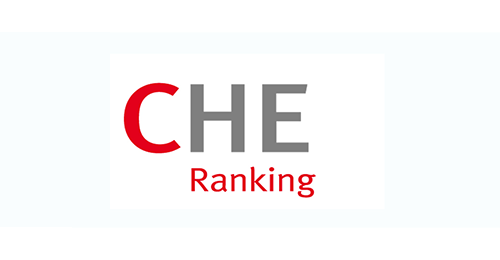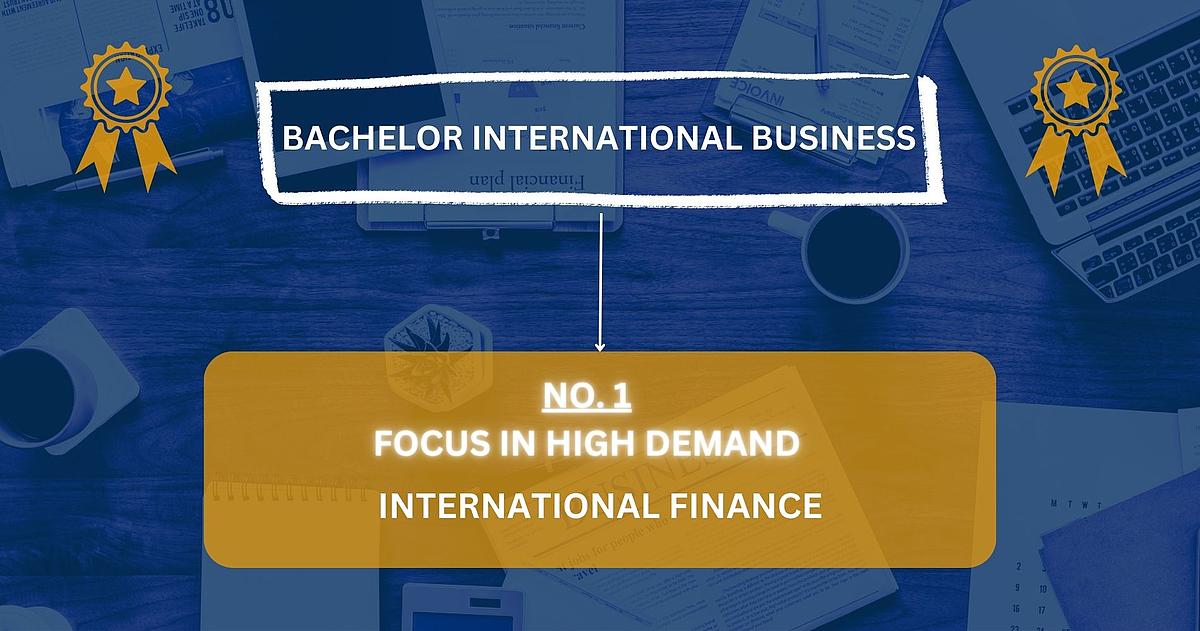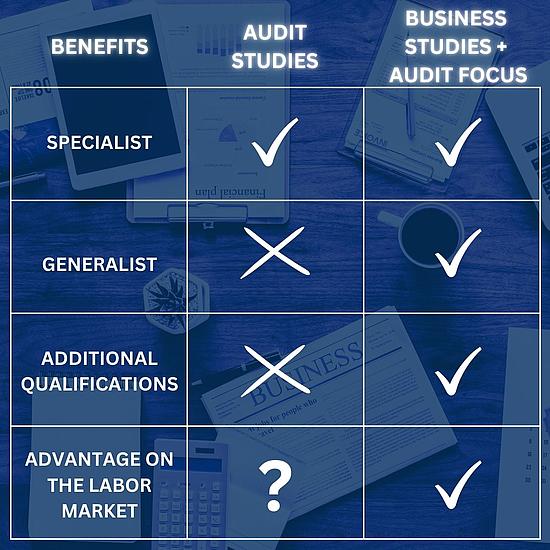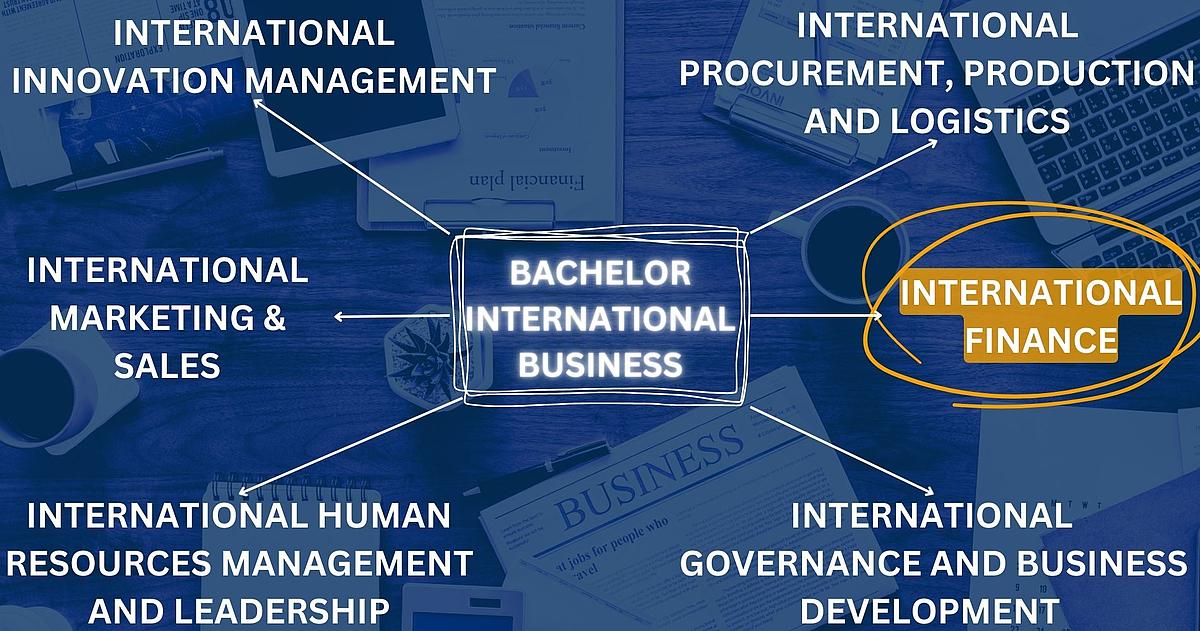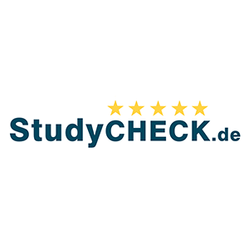By choosing Business Studies as your major, you not only gain in-depth knowledge in the field of auditing, but also a more comprehensive understanding of the overall business context.
Financial Management Studies allows you to explore different subject areas such as Financial Management, Marketing, Corporate Management and Organizational Structures. This broader range of knowledge is an advantage in today's business world, as auditors are not only confronted with financial data, but also with company-wide processes and strategic decisions.
In addition, a Business Studies degree with a focus on auditing opens up more career opportunities. It allows alumni to not only work as auditors, but also gain a foothold in other areas such as Financial Management, Risk Management or Business Consultancy. This versatility can be particularly useful when personal interests change over time or when it comes to positioning oneself flexibly on the job market.
In addition, many Business Studies programs offer the opportunity to integrate internships and real-world applications in various industries, resulting in a hands-on approach to learning. These practical experiences can help deepen the understanding of the applicability of accounting concepts in different business contexts.
Overall, a Business Studies major with a concentration in auditing provides a balanced and well-rounded apprenticeship that prepares alumni well for the challenges of auditing while expanding their career opportunities.

